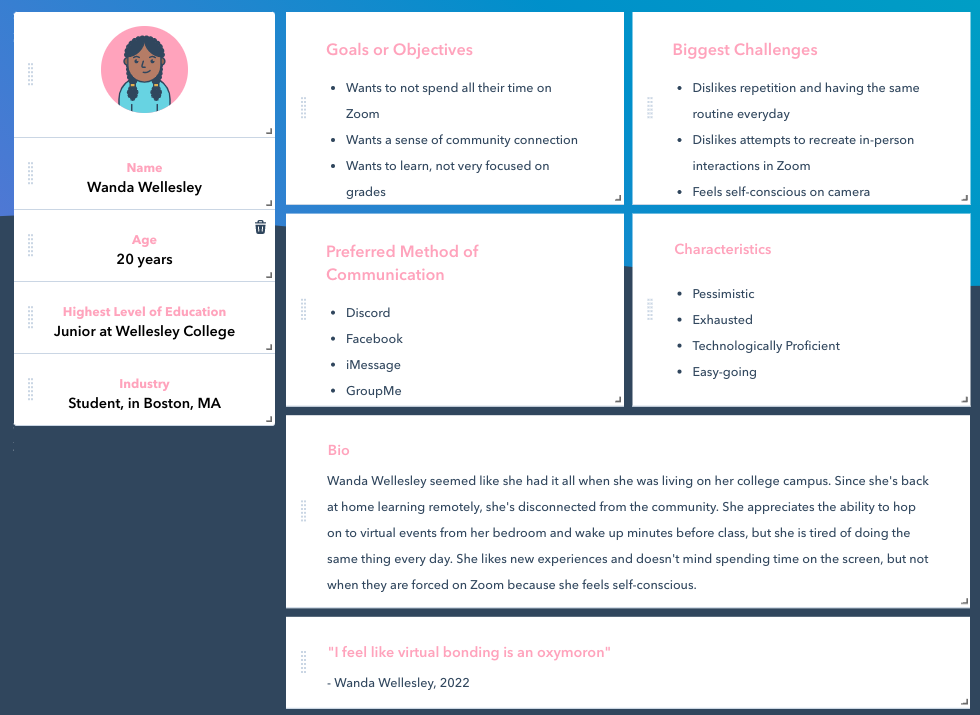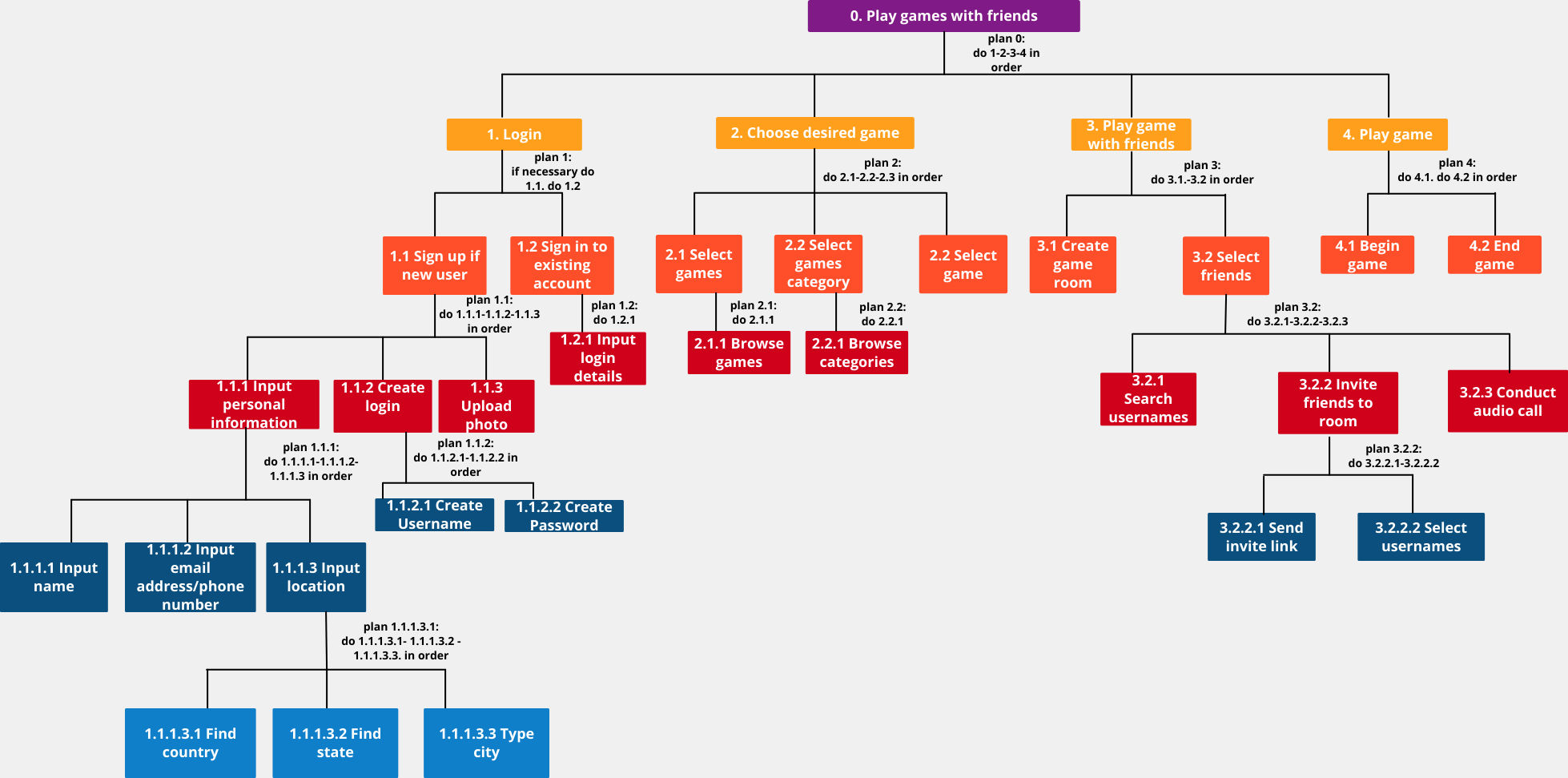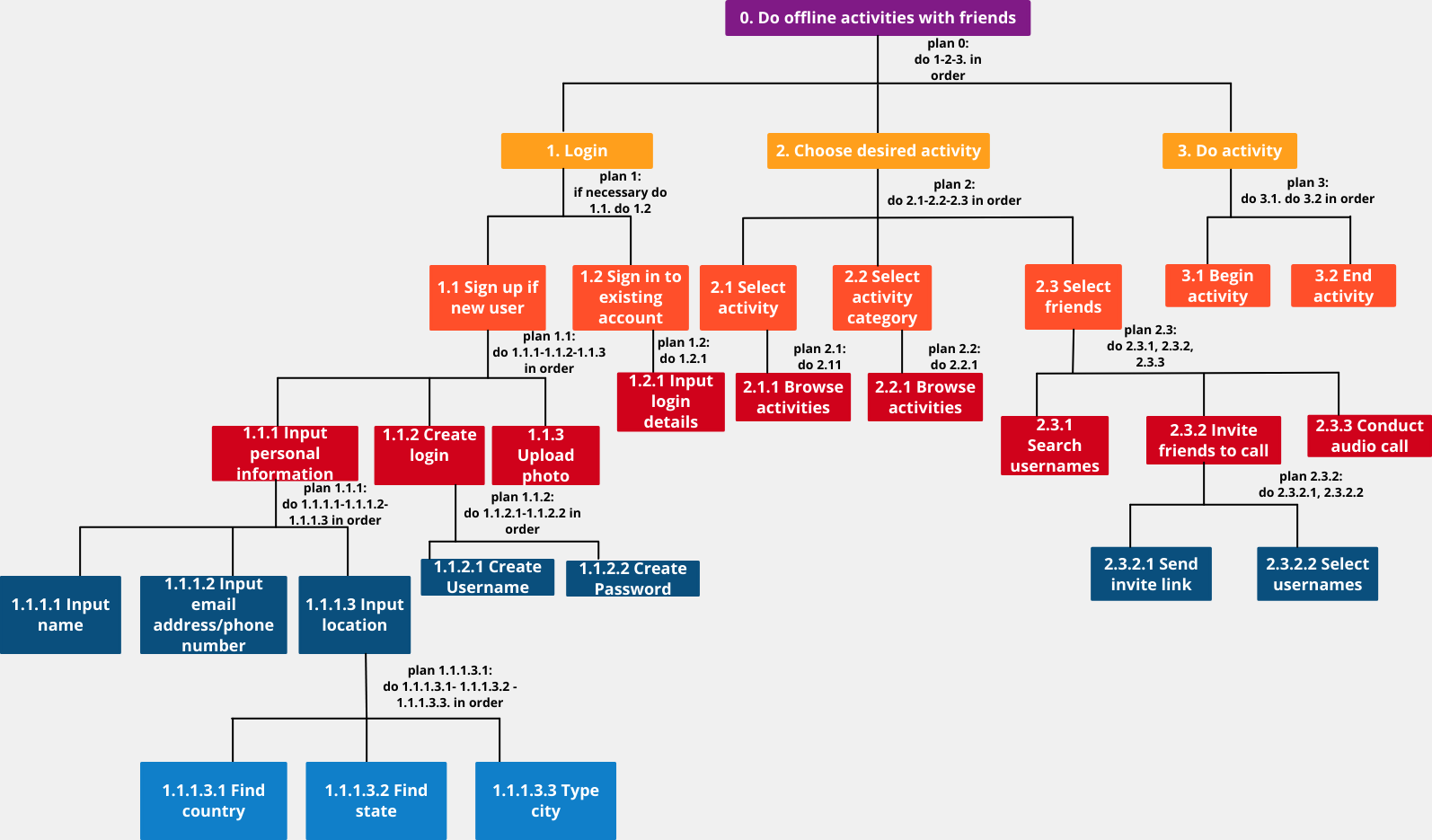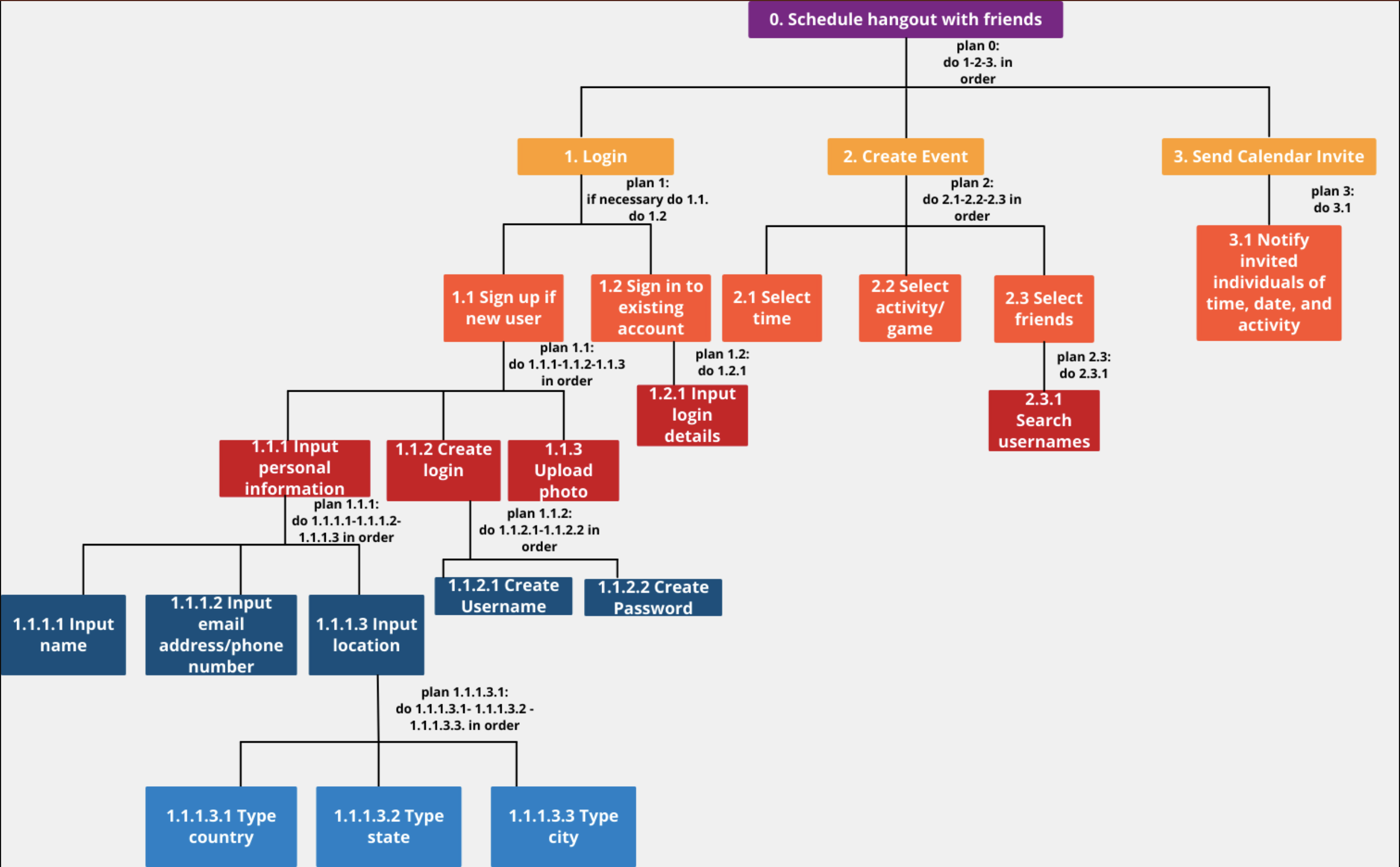
User Analysis
We identified college students and young adults as our target audience for our application and conducted four user interviews. By conducting interviews, creating personas and performing task and domain analyses, we were able to recognize gains and pain points and get a better understanding of the user group.
User Interviews
We were able to pinpoint current experiences, feelings, and coping mechanisms through our user interviews.
Interviewee A
Interviewee A has found time zone differences and excessive screen time required by virtual meetings difficult to manage. They have been trying to socialise with friends virtually by hosting virtual game nights. Interacting with family in person, taking walks and finding ways to relax that do not require them to be on a screen has been a priority in order to avoid fatigue and frustration. They’ve witnessed higher participation in the activities that they are involved in since it is more accessible and easier to fit into tight schedules. However, despite seeing a greater number of participants at events, they said that it has been difficult to connect with new people. Interviewee A has been using Facebook messenger and email to communicate with different groups of people, including organizations, friends, and family.
“Connecting in person feels a lot easier than reaching out virtually as many people are not as comfortable chatting online with someone new.”
Interviewee B
Time zone differences have posed a challenge for Interviewee B, but at the same time the absence of travel time and virtualized form of everything has made their daily schedule more flexible. They get zoom fatigue and find that they become more unproductive because of it, but keeping their video on during Zoom calls keeps them accountable. They have noticed that Zoom attendees find it exhausting to find opportunities to speak up. They’ve been going to regular e-board meetings. They see that virtual events, in comparison to in-person ones, are harder to make connections in because participants may have their video off (especially for larger events) and it’s more work to reach out to someone you’ve met virtually. They have noticed that Zoom attendees find it exhausting to find opportunities to speak up.
“The interpersonal touch of being on campus is missing and I’m not getting to develop relationships with new people as much as possible as well as other people already involved with the activities I’m participating in.”
Interviewee C
Interviewee C finds it easier to make it to events that have been organised due to saved travel time but is finding it harder to schedule and organise times for organisations that they are heading. They try to reduce screen time and go for walks in between online events. They also think that online events are more formal with more awkward silences but events have been more organised. Being at home has made them not speak about some topics as openly as they would have if they were on campus. Email and social media have been the best ways to communicate and they’ve been using Facebook a lot even though they don’t like it very much since there’s no physical spam. They’ve been trying more things and have even been attending readings by their favourite authors which they might not have been able to do remotely! They have been connecting with people they normally wouldn’t have and have been playing online games as well!
“It's been a headache to create a when2meet for the org I’m heading and scheduling has been a nightmare.”
Interviewee D
Interviewee D is not enjoying remote connections overall and feels disconnected from people despite virtual attempts to engage. They feel less stressed overall because they don’t have to worry about going to physical places or looking their best, but they feel like they are stuck in a sort of Groundhog’s day. They don’t have push notifications on so their communication is limited to when they decide to check their phone. They are not looking to expand their social network at this time and don’t feel any inclinations to join new organizations. While they enjoy some virtual games, they generally feel pessimistic towards attempts to make virtual connections. They also wish that people would stop trying to recreate their old lives virtually.
“For extracurriculars, I wish people would stop trying to make everything online. Don’t recreate the quantity of activities as you had online. I feel like virtual bonding is an oxymoron. I feel like I’m more relaxed than I was on campus because I have this false sense that nothing is real anymore.”
Personas
After gaining insight into our user group through interviews, we created two personas.
Persona 1: Wanda Wellesley

Persona 2: Rebecca Remote

Task Analysis
We conducted task analyses for three tasks to verify the steps we think the user would take to accomplish it so that we could keep it in mind while delivering information to the user.
Hierarchical Task Analysis (Task 1):

Hierarchical Task Analysis (Task 2):

Hierarchical Task Analysis (Task 3):

Domain Analysis
Lastly, we conducted a domain analysis to identify important entities relevant to our problem domain.
People:
Remote students, socially distancing students, org leaders (e-board), young adults
Websites:
Facebook, e-Mail, Miniclip, Netflix Party, papergames.io, skribbl.io
Applications:
Google Calendar, iCal, jigsaw.io, GamePigeon, HouseParty
Objects:
Cooking supplies, workout gear, art supplies